The concept of work-life balance has been evolving rapidly in the past few decades, especially with the advent of new technologies that enable remote work, flexible hours, and instant communication. In today’s hyperconnected world, the intersection of work and personal life has undergone a profound transformation, largely driven by technology. While technology has undoubtedly brought about greater convenience and flexibility in our professional lives, it has also blurred the boundaries between work and personal time, raising the question: Is technology a blessing or a curse when it comes to work-life balance? Are these technologies really helping us achieve a better balance between our professional and personal lives, or are they creating new challenges and pressures that undermine our well-being?
The Tech-Enabled Remote Work Revolution
One of the most significant changes in recent years has been the rise of remote work, facilitated by technology. The COVID-19 pandemic accelerated this shift, with businesses worldwide adopting remote work arrangements. While remote work has provided flexibility and eliminated commutes, it has also created challenges such as the blurring of boundaries between work and personal life. Many employees find themselves working longer hours, as their homes become their offices.
Advancements in collaboration tools and video conferencing have made remote work feasible, allowing teams to stay connected regardless of geographical locations. However, the convenience of being “always on” can lead to burnout and a lack of separation between work and leisure.
The Smartphone Dilemma
Smartphones, hailed as technological marvels, have transformed how we work and communicate. These pocket-sized computers provide constant access to emails, messages, and work-related apps. While this accessibility enhances productivity and responsiveness, it can also disrupt personal time, causing individuals to check work-related notifications during evenings and weekends.
The addictive nature of smartphones and the compulsion to be connected always have raised concerns about digital addiction and the erosion of true downtime. Finding a balance between staying connected for work purposes and disconnecting to recharge has become a delicate challenge.
Tech as a Work-life Enabler
It’s essential to acknowledge that technology has not solely disrupted work-life balance; it has also played a significant role in enabling a better balance for some. Flexible work arrangements, made possible by technology, allow employees to tailor their work hours to their personal lives. Video conferencing and collaboration tools have reduced the need for frequent business travel, affording more time with family and reducing environmental impact.
Additionally, technology has made it easier to access wellness resources, from fitness apps to mental health platforms. These tools can contribute to a healthier work-life balance by promoting self-care and stress management.
Pros of Tech-Driven Work-Life Balance Changes
Technology has undoubtedly brought many benefits to workers who seek more autonomy, flexibility, and diversity in their careers. Some of the advantages of tech-driven work-life balance changes are:
- Remote work: Technology allows workers to perform their tasks from anywhere, as long as they have a reliable internet connection and a suitable device. This means that workers can choose where they want to live, avoid commuting stress, save time and money, and enjoy more comfort and convenience. Remote work can also improve employee satisfaction, retention, and performance, as well as reduce environmental impact.
- Flexible hours: Technology enables workers to adjust their schedules according to their preferences, needs, and responsibilities. This means that workers can work when they are most productive, creative, and motivated, and take breaks when they need to rest, recharge, or attend to personal matters. Flexible hours can also foster a culture of trust, accountability, and results-oriented work, rather than clock-watching or micromanagement.
- Instant communication: Technology facilitates fast and easy communication between workers and their colleagues, managers, clients, and partners. This means that workers can collaborate more effectively, share information and feedback more efficiently, and solve problems more quickly. Instant communication can also enhance social connection, engagement, and teamwork, as well as foster a sense of belonging and community.
Navigating the Future
The future of work and work-life balance remains uncertain as technology continues to evolve. Companies are grappling with how to strike the right balance between remote work and in-person collaboration. New technologies like virtual reality (VR) may further change the landscape by offering immersive remote work experiences.
To navigate this evolving terrain, it’s crucial for individuals to set boundaries and establish digital detox routines. Employers must implement policies that prioritize employee well-being and mental health, recognizing that overworking employees does not equate to increased productivity.
The relationship between technology and work-life balance is intricate and multifaceted. While technology has undeniably revolutionized the way we work, offering flexibility and convenience, it has also brought challenges in the form of digital overload, burnout, and the erosion of personal time.
Ultimately, whether technology is to thank or blame for changes in work-life balance depends on how we harness its potential. It’s essential to strike a balance between leveraging technology for productivity and preserving our mental and emotional well-being. The future of work should prioritize not only efficiency and connectivity but also the preservation of meaningful personal lives.
In this digital age, the responsibility lies with both individuals and organizations to use technology as a tool to enhance, rather than detract from, our ability to lead balanced and fulfilling lives. Technology should be a catalyst for improved work-life balance, offering us the freedom to work and live on our terms, rather than a constant reminder that we are always at work’s beck and call.




